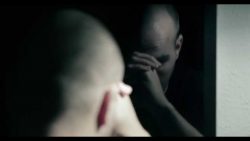How Cannabis Abuse Makes Manic Depression Disorder Worse
Cannabis ranks second only to alcohol as the most commonly abused substance. This is especially the case for people suffering from manic depression disorder. According to PLoS One Journal, an estimated 30 to 64 percent of manic depression sufferers have used cannabis at some point in their lifetimes.
People struggling with manic depression disorder experience repeated fluctuations in emotional state, which can greatly compromise their overall quality of life from day-to-day. When combined with the effects of cannabis, manic depression disorder symptoms tend to worsen over time with individuals seeing an increase in symptom severity and more rapid cycling of symptoms over the course of the illness. For these reasons, getting needed treatment help for cannabis abuse becomes imperative to taking back control of one’s life from manic depression disorder.
Manic Depression Disorder Components

Cannabis can only provide temporary relief to those with manic depression.
True to its name, manic depression disorder involves repeated cycles of mania and depression, with both states being extreme in nature. Overall, two types of manic depression disorder exist: bipolar I and bipolar II.
With bipolar I, individuals experience full-blown episodes of mania and depression that exist at the same time and/or alternate on a periodic basis. Periods of mania typically last for at least a week bringing on extreme irritability and high energy levels. Depression episodes manifest as mirror opposites of mania to the point where a person experiences symptoms of full-blown major depression disorder.
Bipolar II disorder differs in that sufferers don’t experience both mania and depressive states at the same time, though symptom severity remains the same. With both disorder types, symptoms develop out of pronounced chemical imbalances in the brain.
For information on cannabis abuse treatment options, call 888-647-0051 (Who Answers?) .
Effects of Cannabis Abuse on Manic Depression Disorder
Effects on Mental State
It’s not uncommon for people affected by manic depression disorder to use cannabis to enhance their mood state, especially during manic episodes. While this may produce favorable results for the short term, the effects on the brain’s chemical state only work to aggravate manic depression disorder symptoms in the long run.
According to Harvard University, cannabis abuse has been linked to the onset of many mental disorders, including:
- Depression
- Delusions
- Panic attacks
- Impulse control
- Paranoia
When ingested, THC, the active ingredient in cannabis interacts directly with the brain’s own endocannabinoid system. This system regulates pain/pleasure sensations, moods, memory and appetite. In effect, cannabis abuse interferes with the neurotransmitters that regulate the endocannabinoid system and ultimately destabilizes this system’s normal functioning.
https://www.disorders.org/bipolar/manic-depressive-disorder-symptoms/
Effects on Mood States
The effects of cannabis abuse on mood states leave manic depression sufferers to deal with even more severe episodes of mania and depression, with moods alternating or cycling at a greater frequency over time. According to the British Journal of Psychiatry, these conditions place individuals at greater risk of hospitalization as severe symptoms of manic depression disorder can very well pose a danger to self and others.
Over time, these effects further complicate a person’s recovery progress, making it all the more difficult to take back control of his or her life.
Treatment Considerations
The combined effects of manic depression disorder and cannabis abuse have the makings of a perfect storm as far as a person’s mental and emotional well-being goes. Recovering from manic depression disorder is challenging enough without the added complications that cannabis abuse brings.
If you or someone you know struggles with manic depression disorder and cannabis abuse and have more question, or need help locating a treatment program in your area, please feel free to call our toll-free helpline at 888-647-0051 (Who Answers?) to speak with one of our addictions specialists.





